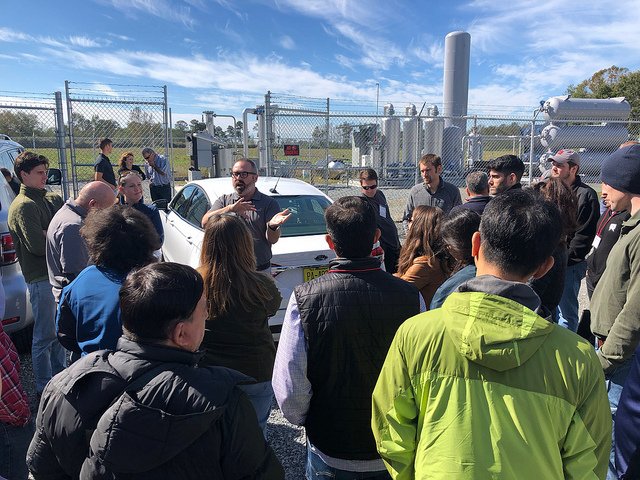
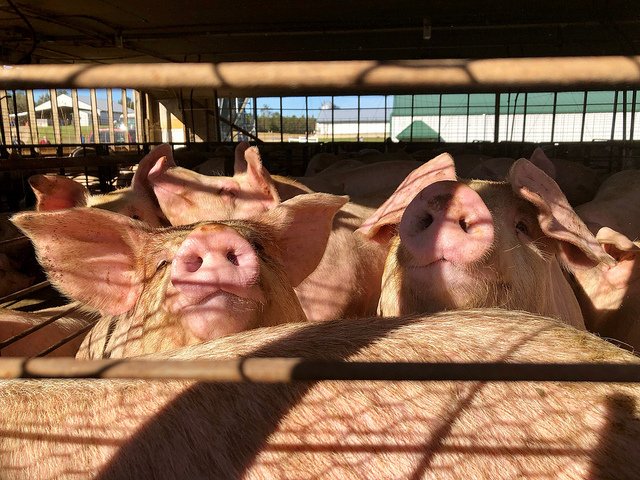
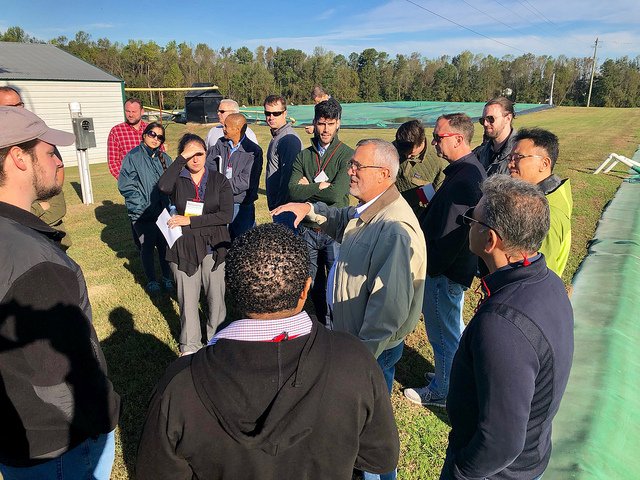
3-Day North Carolina Digester Operator Training Course
Raleigh/Wilmington Area, North Carolina
April 23-25, 2019
Tuition: Early Bird until 3/31 ($1400 ABC members, $1700 Non-members), Regular ($1600 ABC members, $1900 Non-members)
Includes: lunches, various refreshments, and transportation
We are happy to announce that we will be bringing ABC’s Digester Operator Training series to North Carolina this April. This intensive operator training class is for digester operators, operations managers, owners and developers. Each day of this hands-on, 3-day course will be filled with both classroom training and participation at 3 different operating digester sites. Transportation will be provided to each classroom and digester site from the preferred hotel.
Spots are limited.
View pictures from February’s training on the West Coast here: https://www.flickr.com/photos/ambiogascouncil/albums/72157703704340952/with/40264484783/
Training Topics
Day 1
- Introduction to the Science of AD
- Chemistry for Digesters
- Math for Digesters
- Site visit (location announced soon)
Day 2
- More Math for Digesters Overview
- Gas upgrading
- RNG Standards
- H2S Removal
- High/Medium BTU
- Compression, Injection and Odorizing
- Site visit (location announced soon)
Day 3
- Engines
- Coarse and Fine Solids Separation
- Digestate Certification
- Nutrient Recovery
- Site visit (location announced soon)
Meet your Instructors
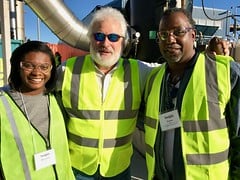
Bernie Sheff, PE
Montrose Environmental Group
View Bio
Since early 2000 he has focused on nutrient recovery, sand separation and digestion in the agricultural market, most significantly the dairy industry and the co-digestion of residuals from confined feeding operations and food processing residuals. Bernie has served as the Chairman of the American Biogas Council for the last 5 years. In 2015, he became Vice President of Engineering for the Montrose Environmental Group.
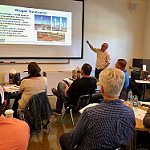
Dr. Craig Frear
Regenis
View Bio
Craig Frear is Director of Research and Technology at Regenis, a premier farm-based anaerobic digester construction management and operations company. Previously with Washington State University (WSU), he was instrumental in developing one of the nation’s most prolific applied science and engineering programs in organic residuals and animal manure treatment for sustainable reuse. He has authored more than seventy peer-reviewed journal and extension papers while an inventor on eight US patents. He holds a Ph.D. in Engineering Science from Washington State University, a master’s in Educational Administration from Columbia University, and a bachelor’s degree in Chemistry and Theology from St. Olaf College. Craig presently serves on the Board of the American Biogas Council.
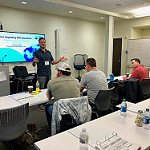
Dan Waineo
Montrose Environmental Group
View Bio
Mr. Waineo has 24 years of experience with a background in process engineering and environmental engineering. He is responsible for the design of landfill extraction systems, LFG and digester gas to Energy Systems, Gas Processing and compressor systems related to the landfill and digester industries at numerous sites throughout the United States. Mr. Waineo has designed numerous biogas upgrading systems including TSA siloxane treatment systems, iron chelate hydrogen sulfide treatment systems, condensate control systems, compressor systems, gas dehydration systems, PSA gas processing systems, Selexol processing systems, Membrane systems, Cryogenic NRUs, Glycol dehydration systems, Amine treatment systems, methane protection systems for buildings, electrical control systems, SCADA systems, and has been responsible for modifications to numerous existing collection/control systems.
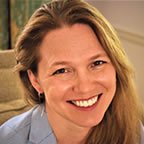
Tanja Vujic
Duke University
View Bio
Tatjana (Tanja) Vujic is Director of Biogas Strategy for Duke University. In that role, Tanja reports to Duke’s Executive Vice President to create a supply of biogas to fuel its campus steam plants and help the University meet its 2024 Climate Neutrality Goal. Tanja has been involved for nearly two decades in various aspects of biogas development, particularly as it relates to animal waste management, carbon reductions and renewable energy production. In 2010, as director of the Duke Carbon Offsets Initiative, she leveraged state and federal funding to develop the Loyd Ray Farms swine waste-to-energy system with Duke Energy and Google. Using lessons from the Loyd Ray Farms project — the first project in the state to generate renewable energy certificates from swine waste and registered carbon offsets by destroying livestock-sourced methane — Tanja then led a comprehensive analysis of a Directed Biogas approach to power generation from swine waste to accelerate compliance with North Carolina’s Renewable Energy and Energy Efficiency Portfolio Standard. Tanja also teaches on topics related to climate change mitigation, clean energy access and energy equity from time to time. She holds a dual degree B.A. from Yale University in Geology and Geophysics and Studies in the Environment and a law degree from The George Washington University.
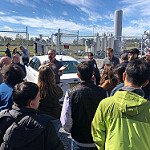
Gus Simmons
Cavanaugh & Associates, P.A.
View bio
Gus Simmons, Jr., P.E. is the Director of Bioenergy and a partner at Cavanaugh & Associates. He is a passionate advocate for the development of our planet’s bioenergy resources, particularly the utilization of organic wastes as feedstock for the development of biofuels, such as anaerobic digester biogas. Gus’s efforts to promote and place into operation systems that harvest the carbon from organic wastes and use it to displace our dependency on fossil fuels are a prime example of Cavanaugh’s commitment to cultivating the stewardship of our natural resources through innovation. He graduated from North Carolina State University with a degree in Biological & Agricultural Engineering, with a concentration in biological waste treatment.
Travel Logistics:
Preferred hotel: Comfort Inn |1412 Sunset Ave., Clinton, NC, 28328, US | Phone: (910) 592-8220 Fax: (910) 592-9880. Make your reservation here. Make sure to mention that you are with the American Biogas Council. We strongly urge you to stay at this hotel. The bus will be picking up and dropping off participants at this location. If you stay at another hotel, you must get to this hotel before the bus leavers or arrive at the first classroom training location each day before the bus arrives.
Recommended Dress Code: No need to dress up. Wear jeans, etc for spring and being outside and shoes/boots (closed-toe shoes are mandatory) for being at a digester. We can provide any gloves, eye and hearing protection that is needed.